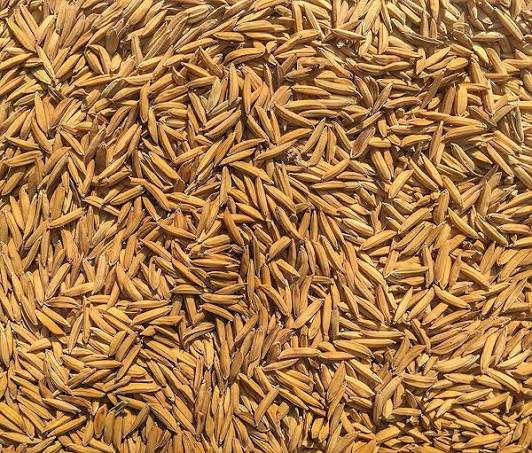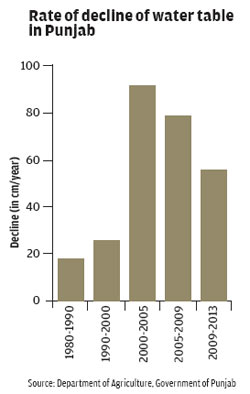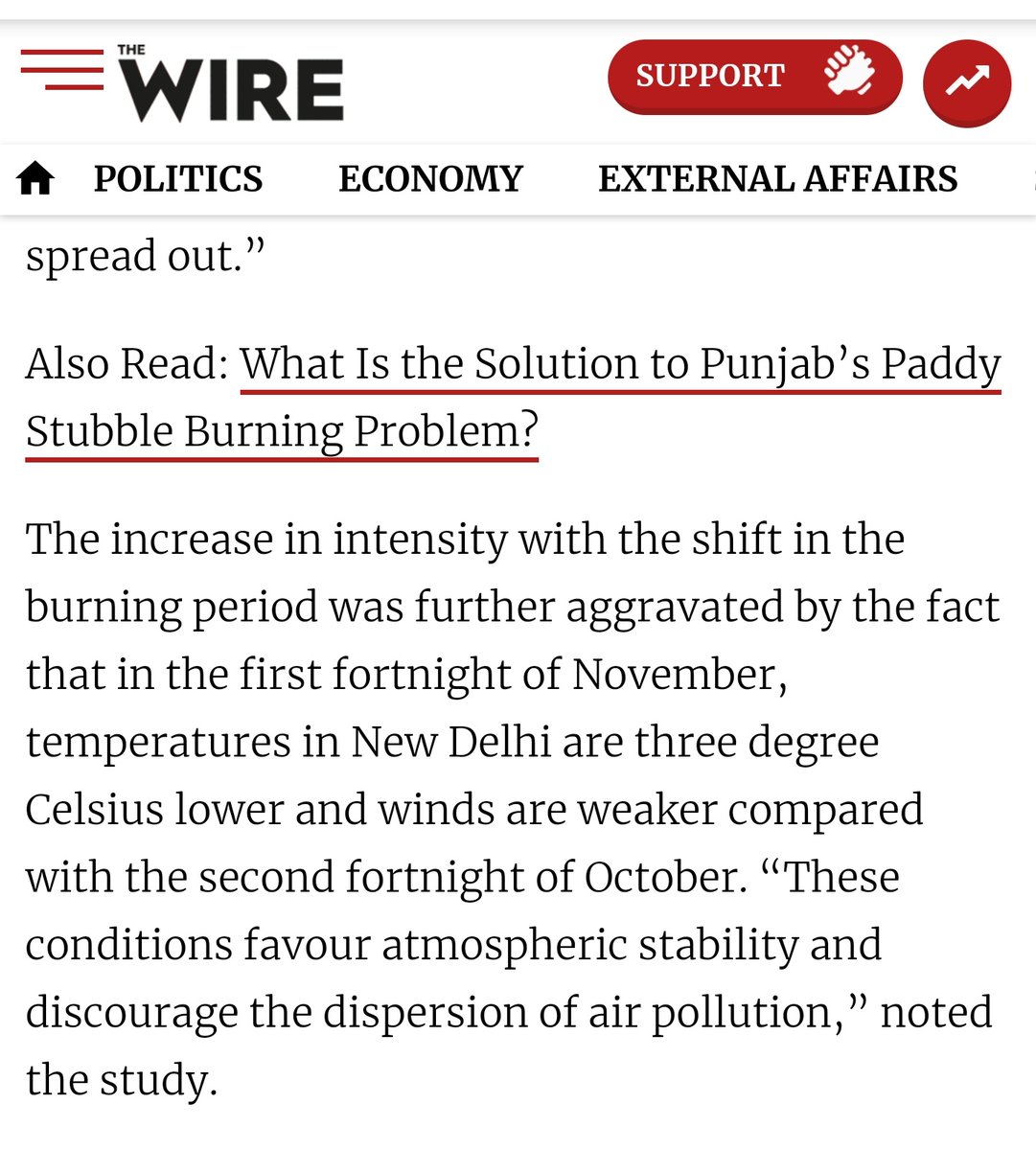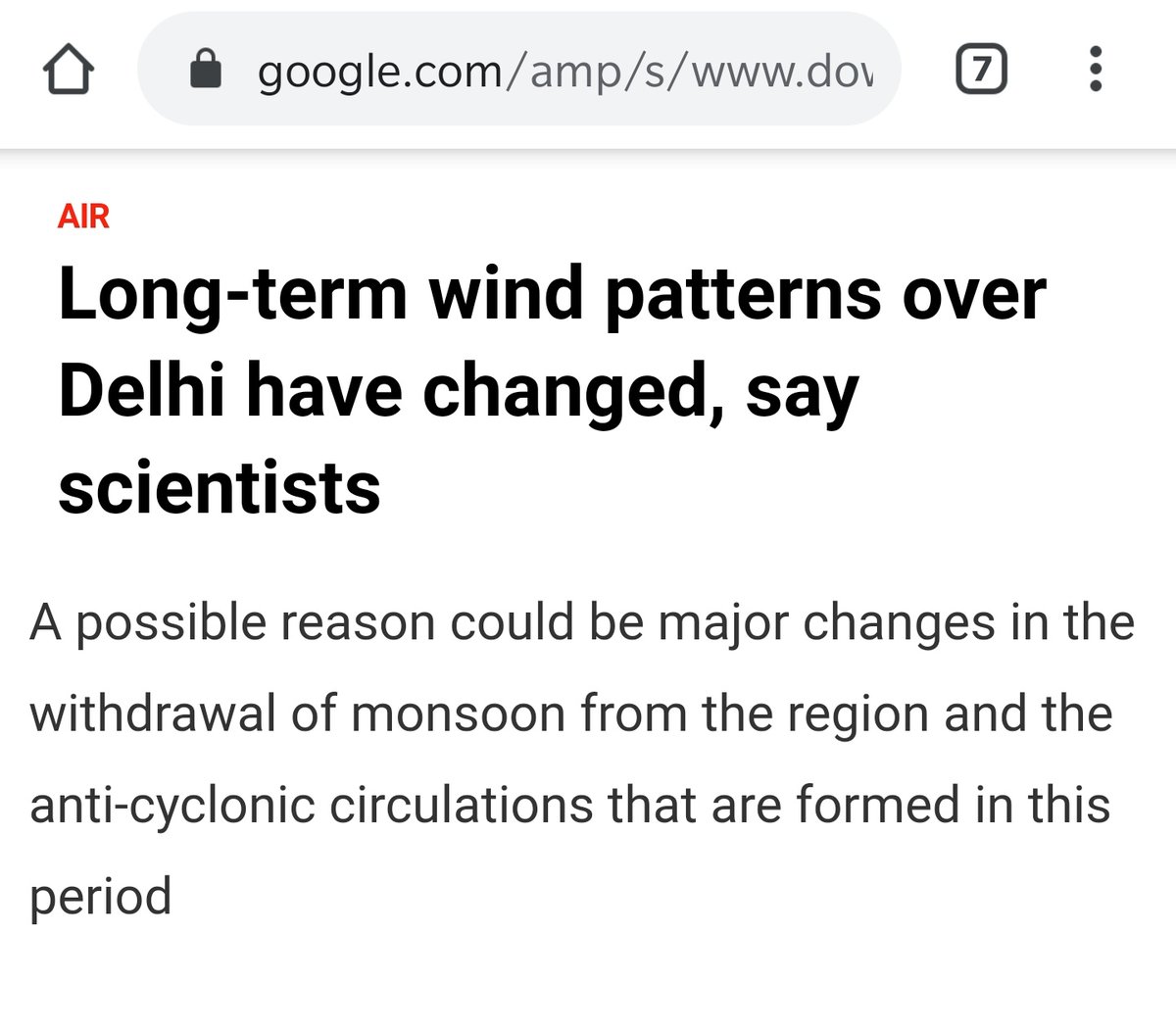Do you know the Punjab Preservation of Subsoil Water Act 2009 and Haryana Preservation of Sub-soil Water Act, 2009, are prime reason for #pollution in Delhi during #diwalifestiveseason
Interesting . Read on this small #Thread https://www.downtoearth.org.in/coverage/punjabs-paddy-dilemma-44957
. Read on this small #Thread https://www.downtoearth.org.in/coverage/punjabs-paddy-dilemma-44957
Interesting
 . Read on this small #Thread https://www.downtoearth.org.in/coverage/punjabs-paddy-dilemma-44957
. Read on this small #Thread https://www.downtoearth.org.in/coverage/punjabs-paddy-dilemma-44957
During 1970-80 the era of Green Revolution Punjab and Haryana shifted from their traditional crops (maize, pearl millet, pulses and oilseeds) to the wheat-paddy cultivation cycle to provide food security to the country without considering impact on water tables
2/n
2/n
Farmers started to sow SATHI (a variety of paddy) ensuring two crops cycle in one kharif season (April to October)
One kg of rice needed 4500 litre water if sowed in April while 1500 litre water if sowed in mid june
3/n
One kg of rice needed 4500 litre water if sowed in April while 1500 litre water if sowed in mid june
3/n
With the change in cultivation pattern, the water table in Punjab started to recede rapidly at alarming rate.
4/n
4/n
Punjab Govt took water problem seriously and regulated time of paddy cultivation thru Law.
2008, farmers were prohibited to transplant saplings before June 10.
This act helped save water tables but created pressure on farmers to cultivate in less time. https://twitter.com/i__Mystic/status/1325985153408139264?s=20
2008, farmers were prohibited to transplant saplings before June 10.
This act helped save water tables but created pressure on farmers to cultivate in less time. https://twitter.com/i__Mystic/status/1325985153408139264?s=20
Farmer gets less time to prepare field for next crop and hence are forced to burn plant waste in relatively less period of time as compared to earlier.
6/n
https://thewire.in/environment/laws-meant-to-save-water-unexpectedly-led-to-more-air-pollution-study
6/n
https://thewire.in/environment/laws-meant-to-save-water-unexpectedly-led-to-more-air-pollution-study
The problem get accentuated, due to the fact that temperatures in Delhi are 3 degree lower and winds are weaker during 1-15 Nov compared with the 15-31 Oct. “These conditions favour atmospheric stability and discourage the dispersion of air pollution,”
7/n
7/n
The studies says the withdrawal of monsoon from the northern region and specific location of Delhi on the path leads to flow of winds from Punjab and Haryana region during 1st fortnight of November.
8/n
https://www.downtoearth.org.in/news/air/long-term-wind-patterns-over-delhi-have-changed-say-scientists-62126
8/n
https://www.downtoearth.org.in/news/air/long-term-wind-patterns-over-delhi-have-changed-say-scientists-62126
Requesting @ArvindKejriwal @capt_amarinder to work proactively as a team and provide permanent relief to choking Delhi. 
Otherwise, we can continue to play blame game and whitewashing. But we can't ignore the elephant in the room. https://twitter.com/i__Mystic/status/1325985141739589637?s=19

Otherwise, we can continue to play blame game and whitewashing. But we can't ignore the elephant in the room. https://twitter.com/i__Mystic/status/1325985141739589637?s=19
Found ground report from Punjab by @NAN_DINI_
This shows once food scarcity became a good surplus at the cost of environment. https://twitter.com/NAN_DINI_/status/1059457198848438274?s=19
This shows once food scarcity became a good surplus at the cost of environment. https://twitter.com/NAN_DINI_/status/1059457198848438274?s=19

 Read on Twitter
Read on Twitter






